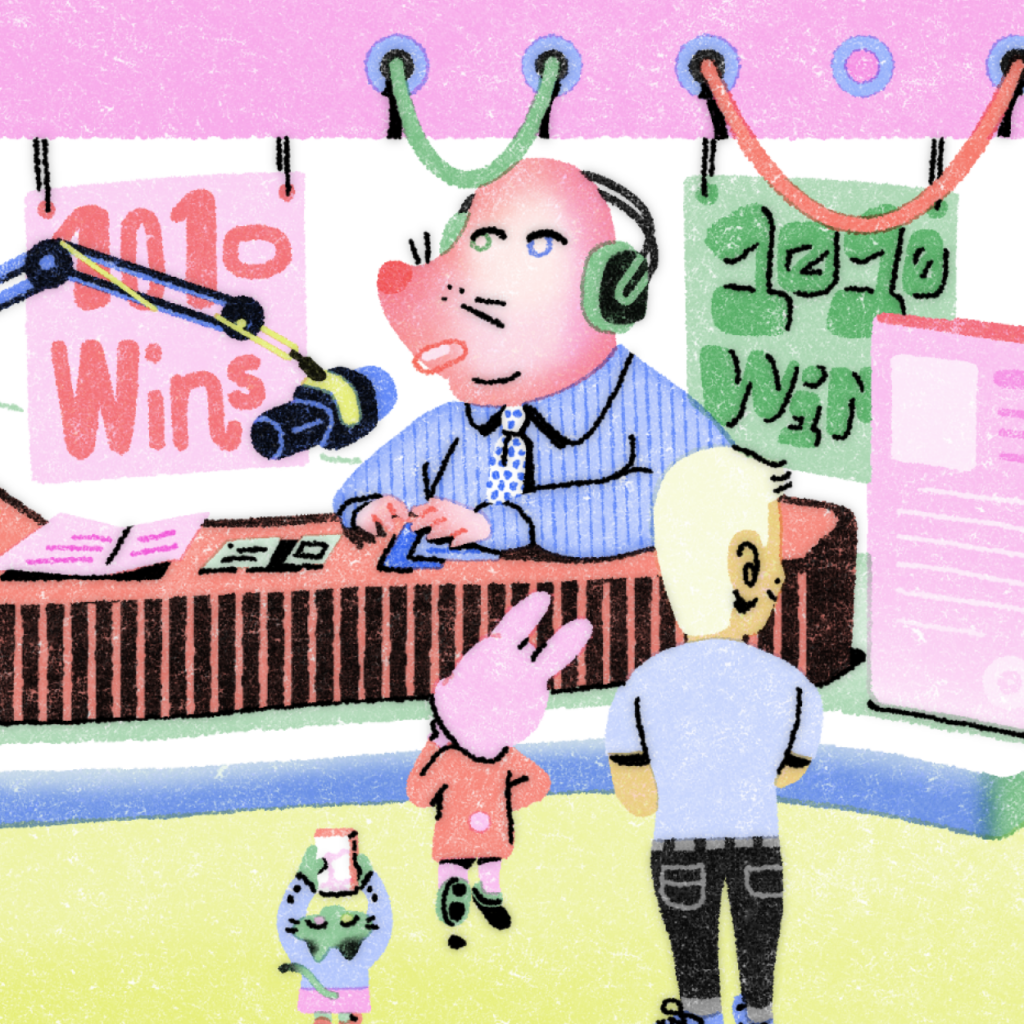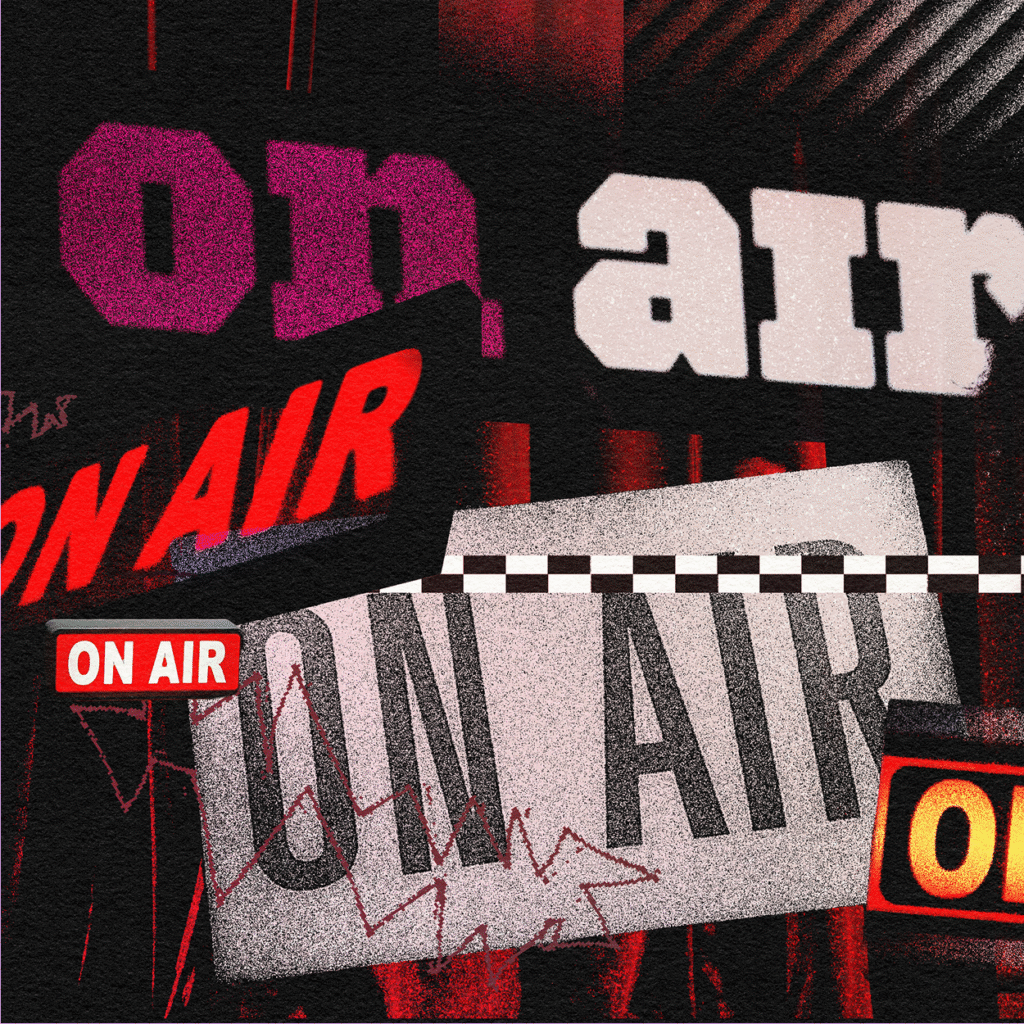Booked and Busy
Here’s a stat for you: of the top 50 podcasts in the U.S., 35 of them—that’s 70%—feature regular interviews with guests, whether for a conversation show like Joe Rogan’s, or a deeply reported longform like “Radiolab.” And of those shows, all but one are “always-on” that publish at least weekly episodes. Twenty-two percent of them air daily.
Extrapolate those figures to the more than 4.2 million podcasts in existence, and you’ll see the challenge facing producers and bookers in the hyper-competitive, always-on era. How do you land guests that will give great tape and raise your show’s profile? Is it actually impossible to get Beyoncé? And will she share your audiogram?
We asked eight veteran bookers, showrunners, and producers to share some guiding principles for landing the guest roster of your dreams.
KNOW YOUR VALUE TO THE GUEST (NOT JUST THEIR VALUE TO YOU)
Why do celebs come on podcasts? “Three reasons,” said Joanna Jordan, founder and CEO of Central Talent Booking. “They do it for image. They do it for promotion. And they do it for money.” The money part, she clarified, usually applies to celebs hosting podcasts, but the rule still holds. “You have to know why it is that they’re doing your podcast. And as a booker, if you can represent someone where you hit all three, then the level of your guests is going to go up.”
Tying a guest’s appearances to their promotional goals is standard practice in late-night TV. Jordan got her start with Letterman, and her company is the longtime booker for “Jimmy Kimmel Live” in addition to podcasts and live events. But this methodology has crossed over to the audio space.
“We keep an ongoing database of upcoming releases: for films, for TV show premieres, season premieres, albums coming out,” said Debbie Wunder of Good Cop Bad Cop Talent Booking. Wunder and her co-founder Ashley Olivia also began their careers in late night, booking for a pre-podcast-era Conan O’Brien. So they too believe in seeing your podcast through the eyes of your guest—and their publicist.
“What’s the incentive for the talent to do this?” Olivia encourages clients to ask. “Everybody has a podcast now. Why choose yours?”
UP YOUR OUTREACH GAME
OK, why should a guest choose your show? In the early days, the novelty of the podcast format was enough, recalled Will Malnati, founder and CEO of the production studio At Will Media (“Wild Things,” “The Big Flop”). “It was like this new, exciting thing. Guests were like, ‘Of course. An hour and a half? Two hours? No problem.’ It was like this new adventure.”
That novelty is, of course, long gone. So it’s up to you to make your request stand out. “They want some kind of metric,” said Sequoia Thomas, a lead producer for At Will. “Whether that’s podcast charts or download numbers, or even just the prevalence of the host or the production company, there’s a lot of different ways that you can get across to a rep that the podcast will have some reach.”
But newer properties that can’t yet boast killer numbers shouldn’t despair, Thomas observes. You can differentiate your show by getting crisp about why your show is unique, and why X guest would be perfect. “Make sure you’re saying, ‘Your client would love this topic because we know that they did a stand-up bit on this.’”
Oh, and Malanti added: put it in a personalized email, with clickable links and a teaser trailer that conveys topic and tone—even if you haven’t aired the first episode yet. “Your job as a producer is to make it as easy as possible for the person receiving the email to know exactly what the podcast is that you’re referring to in like 30 seconds.”
PARLAY YOUR WINS
“All my shows kind of work off each other, and that’s the beauty of it,” said Mara Davis, an Atlanta-based talent booker and publicist whose clients include Campside, Vox, and Maximum Fun. “When you’re hiring me, you’re getting access to all the people who are pitching me a ton of things. So I may say, ‘Oh, well, this isn’t right for “Bullseye [with Jesse Thorn],” but it is right for this one or that one.’”
Davis noted that not every show has the budget for a dedicated talent booker. But those that do benefit from a network that goes beyond a single show’s ecosystem. One booking win can be parlayed into many, across multiple clients.
One such client, Maximum Fun senior producer Kevin Ferguson, concurred. “To the surprise of nobody, we found that the ‘Bullseye’ episodes that perform best are the ones in which you have the most recognizable name on the title of the episode. With Mara we were able to get Tom Hanks…[and] a lot of hip hop talent” that are part of her network of contacts.
But Ferguson noted that there’s another way to parlay one good interview into many: by giving the guest a great experience on the show itself. “Just about every rapper we’ve had come on ‘Bullseye’ has come out of it feeling like they were interviewed like an artist and a musician, and not like, ‘So what’s your life story?’ Jesse is a really sincere fan of their work and does his research. It is something that, when we go for those guests, resonates.”
If you want one great booking to lead to the next, it matters if the interview itself is a good experience. Speaking of which…
NO, YOU CAN’T GET BEYONCÉ (AND MAYBE YOU SHOULDN’T)
“You can’t hide power dynamics and relationships in a recording,” said Eric Silver, head of development at the podcast collective Multitude. He has some counterintuitive theories about booking big guests, like: there’s such a thing as too big.
“If someone is promoting a book or a new special or whatever, and they come on a show where they are too popular or too famous for the show they’re on, the dynamic is really weird. When you’re picking a guest, shoot for the moon, for sure. But also make sure they fit. Otherwise, you’re just gonna have a really weird episode. A host might not be aware that they’re fawning over their guests.”
By contrast, he said, there are guests with sneaky name value you can’t always predict, like comedian Brennan Lee Mulligan, whose appearance on an episode of Multitude’s “Tell Me About It” generated traffic basically by accident. “We didn’t market it. We didn’t do anything,” Eric said. But the episode got thousands of views on YouTube because Mulligan’s name is SEO gold.
“People are chasing clicks and metrics,” Davis said, “and they think that if you’re booking this guest with a million followers, that they’re going to share your podcast when they become a guest. That’s not always the case.” Instead, she said, it’s a booker’s job to find the guest who will elevate the content. In other words: good tape is worth more than a big name.
Jordan put it this way: “Your job isn’t just to find the guest. It’s also to showcase the host. You don’t want your host to get tired of that same short list, right? You want to give them every opportunity to shine.”
![]()
Katie Clark Gray is a Webby award-winning podcast producer, Pew Fellow, and partner at Uncompromised Creative. Past credits include: writer/producer, “The Best Idea Yet” (Wondery); senior producer, “Masters of Scale” (WaitWhat); writer/performer, “Fathom.” More at Uncomp.ninja.









